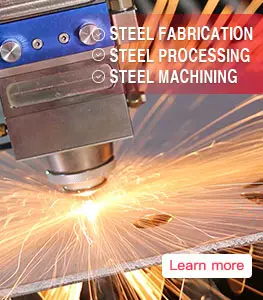Welcome to BBN Steel Materials Factory
16Mo3 boiler alloy steel plates information

16Mo3 steel is a type of boiler alloy steel that is widely used in the construction of boilers, pipelines, pressure vessels, and other related high-temperature equipment. 16Mo3 boiler steel grade is often used in the manufacturing of furnace parts, gas turbines, and other thermal power equipment. The high content of molybdenum and chromium in the 16Mo3 boiler alloy steel plates provides excellent corrosion resistance and high-temperature strength.
The chemical composition of the 16Mo3 boiler alloy steel plates is as follows:
Carbon (C): 0.12-0.20%
Manganese (Mn): 0.40-0.90%
Silicon (Si): max 0.35%
Phosphorus (P): max 0.025%
Sulphur (S): max 0.010%
Chromium (Cr): 0.30-0.70%
Molybdenum (Mo): 0.25-0.35%
Nickel (Ni): max 0.30%
Copper (Cu): max 0.30%
Vanadium (V): max 0.25%
Boron (B): max 0.004%
Nitrogen (N): max 0.012%
The mechanical properties of the 16Mo3 boiler alloy steel plates are as follows:
Tensile strength: 440-590 MPa
Yield strength: 220-275 MPa
Elongation: 23% min
Impact test: -20℃, >= 34J
The mechanical properties of 16Mo3 steel make it an ideal choice for high-temperature applications where strength and durability are required.
EN10028-2 16Mo3 boiler alloy steel plates are widely used in the construction of boilers, pressure vessels, and pipelines. These plates are used in the manufacturing of various types of boilers, including water tube boilers, fire tube boilers, and boilers used in gas turbines. Pipelines made of 16Mo3 steel are used in the transportation of gases and liquids at high temperatures and pressures. The high-temperature strength of the steel makes it ideal for use in pipelines that carry superheated steam and other high-temperature fluids. The 16Mo3 boiler alloy steel plates are also used in the manufacturing of thermal power equipment, such as furnace parts and gas turbines. The steel’s excellent corrosion resistance and high-temperature strength make it an ideal choice for use in these applications.
The 16Mo3 boiler alloy steel plates have many advantages when compared to other steel grades. These advantages include:
1. High-temperature strength: The high content of molybdenum and chromium in the steel provides excellent high-temperature strength, making it ideal for use in applications that require durability and strength at high temperatures.
2. Corrosion resistance: The high chromium content in the steel provides excellent corrosion resistance, making it ideal for use in environments that are highly corrosive.
3. Weldability: The steel can be easily welded using conventional welding methods, making it easy to manufacture and repair.
4. Cost-effective: The steel is cost-effective and provides an excellent cost-to-performance ratio, making it a popular choice for industrial applications.
5. Availability: The steel is widely available in various forms, including plates, sheets, and pipes, making it easy to source and use.
.webp)
.webp)
.webp)
.webp)
.webp)
.webp)
.webp)
.webp)
.webp)



Leave a Message